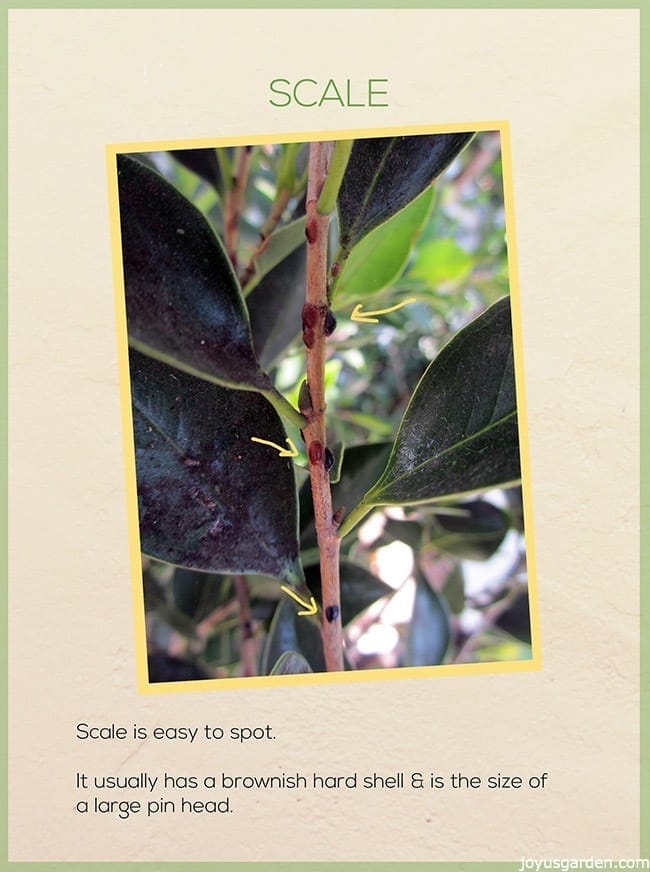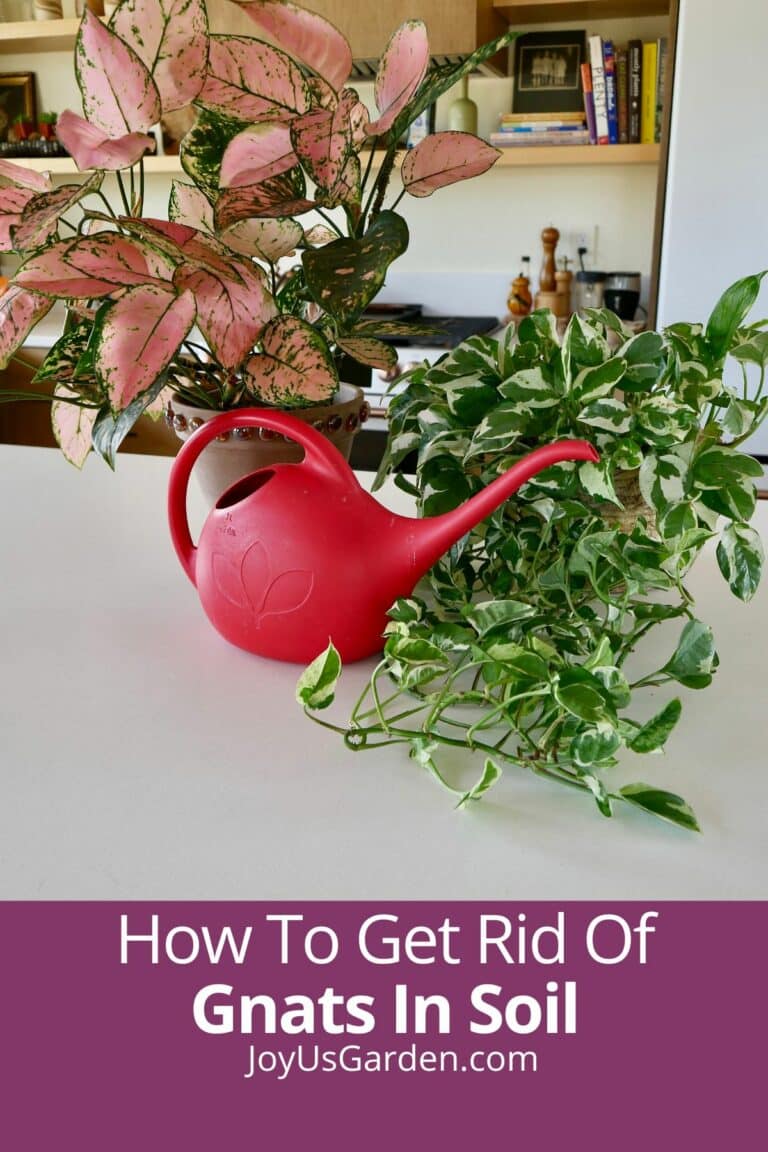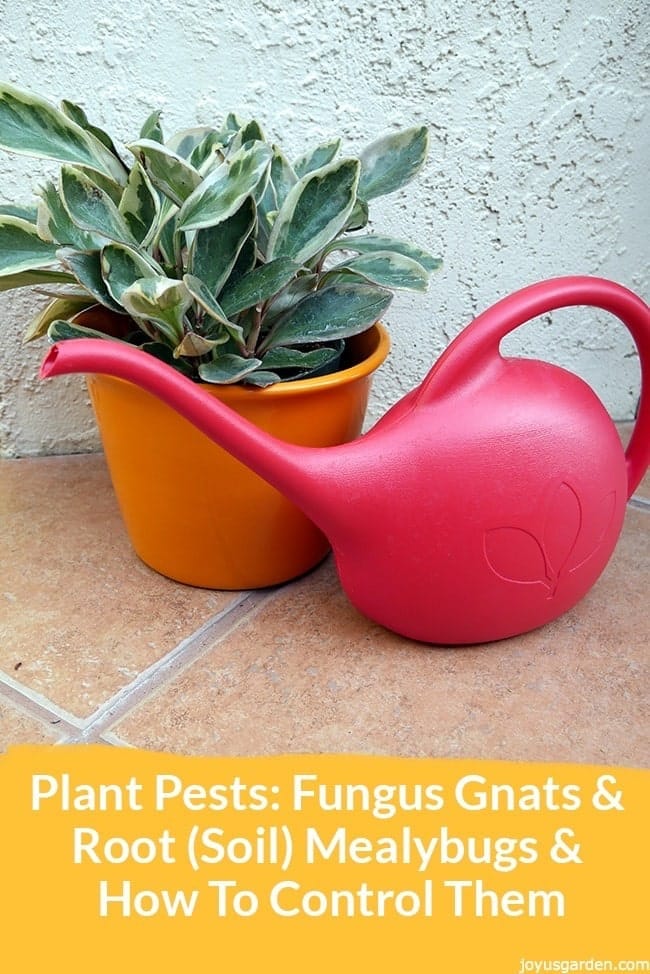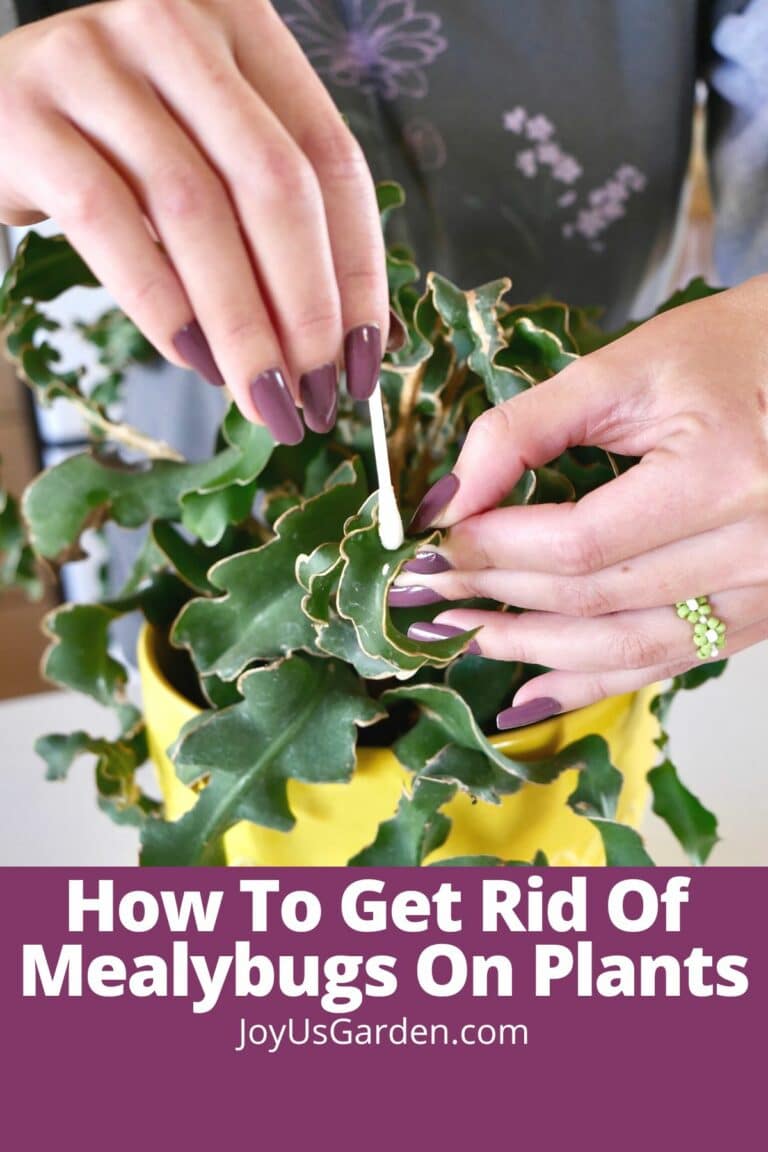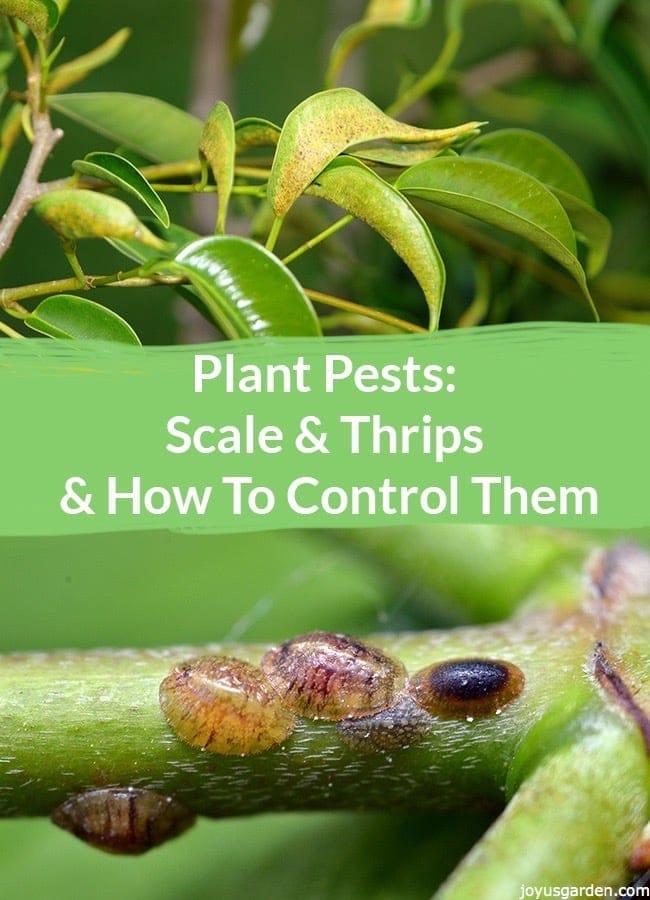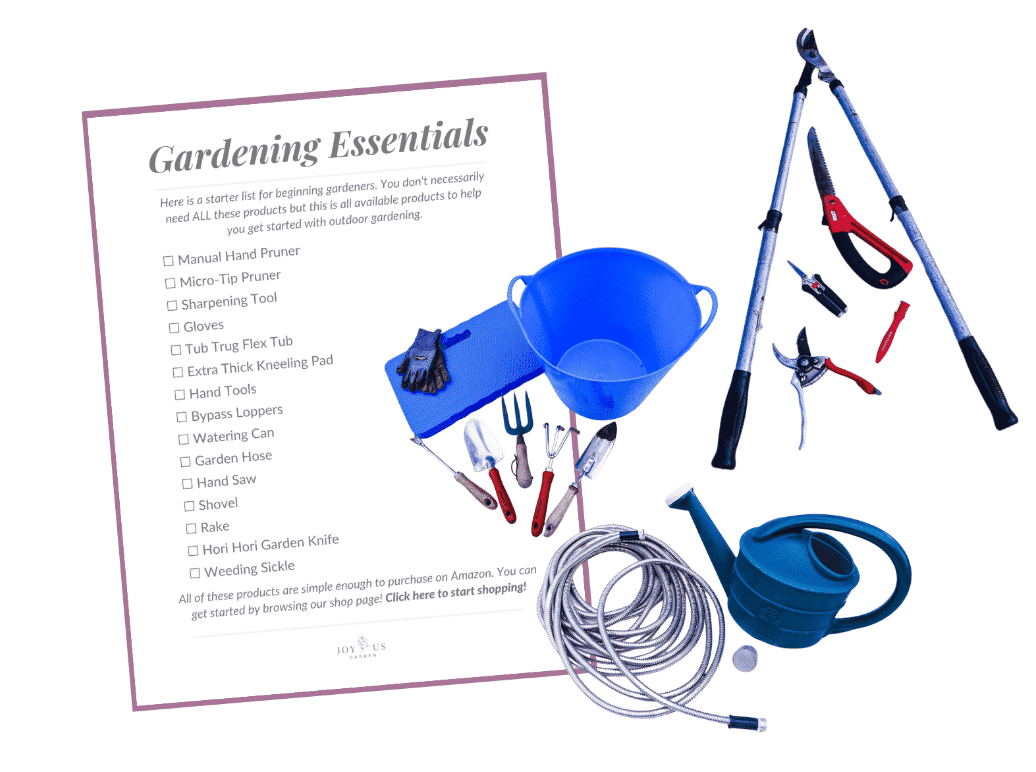How to Get Rid of Scale on Plants
Below, you’ll find tips on identifying, treating, and preventing hard bodied scale so you won’t have to deal with these troublesome pests ever again!
Most plant keepers are very familiar with soft scale insects or mealybugs, which can devastate both outdoor and indoor plants. But hard bodied scale species are even tougher to eradicate, and their small, domed bodies are easily camouflaged within houseplant leaves.
If you’ve ever struggled with scale insects or you think you may currently have a hard-bodied scale infestation, this guide will help.
What Are Scale Insects
Scale belongs to the subfamily Coccoidea, which contains over 8000 different species of scale insects. Scale insects are generally divided into two main categories: soft scales and hard-bodied or armored scales.
Both types of scale insects can infect indoor and outdoor plants, although hard scale tends to be more common on garden plants and fruit trees.
Scale bugs are closely related to aphids and whiteflies and, like their plant pest cousins, scale feed on plant sap with their sucking mouth parts. Adult scale insects are stationary and rarely move from their feeding spots on plant leaves and stems.
However, when scale insects are in the nymphal or crawler stage, they can move about plants and spread between houseplants and garden plants.
Hard-bodied scale are quite small, only measuring about 1/16” long, and their hard, domed bodies are covered in a waxy coating that’s usually brown or black in color.
Since the hard shell of scale insects blends in so well, it can sometimes be very hard to spot these insect pests, and it’s common for infestations to spread before gardeners even notice their plants are in trouble.
What Causes Scale Insects
Hard scale insects are found in nature and can occur in any garden, although they’re more likely to crop up on stressed plants. Gardeners may never notice scale insects since healthy plants often resist scale infestations, and natural predators, like lacewings and parasitic wasps, control outdoor scale populations.
However, if plants are stressed or diseased, they will be much more vulnerable to scale problems.
Hard bodied scale are less common indoors, but they can occur. Often, scale insects arrive indoors on new plants, but houseplants may also develop scale if they’re kept outdoors during summer.
Identifying Scale Insects On Plants
Scale insects are so small that you may need a magnifying glass to spot them! If you suspect that your plants are infested with scale, check the entire plant over carefully and pay special attention to the plant stems, leaf veins, and the underside of leaves, too.
Hard bodied scale insects are often confused with plant fungus and the natural bumps that appear on some plant stems. However, scale insects affect all parts of the plant, and unlike natural plant bumps, scale insects can be easily scraped off the branches, stems, or leaves of your plants with your fingernail.
If you notice a sticky honeydew residue on your plant leaves and stems, you’re not dealing with hard-bodied scale. Hard scale doesn’t produce this sticky substance (or sooty mold either), but soft scale (one type being mealybugs), aphids, leafhoppers, and whiteflies do!
How To Prevent Scale Insects
The best way to prevent outdoor scale insects is to keep your plants happy by giving them the proper balance of light, fertilizer, and water.
It’s also wise to practice organic gardening methods and grow plants like cilantro and parsley, which naturally attract beneficial insects. When ladybugs, lacewings, and other natural enemies of scale insects arrive, they’ll keep scale populations in check without you needing to do much.
On the other hand, houseplant scale infestations can be prevented by inspecting new plants and quarantining new arrivals for several weeks before you add them to your houseplant collection.
If you place plants outdoors during the summer, check plants over carefully and then spray them with an organic, horticultural oil spray before you bring your plants back inside in the fall!
Damage Caused By Scale Insects
Small infestations of scale may not cause a lot of issues. However, since scale insects can spread rapidly during their larval stage, you’ll want to tackle scale problems as quickly as possible.
When they invade, scale insects feed on plant leaves, branches, and stems, and the places where the scale feed can become discolored or yellow.
As infestations progress, the plants may be covered in a thick coating of hard scale, and plants may drop their leaves or become stunted. Plants with severe infestations can eventually become so stressed that they die back.
How To Control and Get Rid of Scale Insects Indoors & Outdoors
Eradicating scale on houseplants and garden plants can be a hassle, but it’s definitely doable! All you need are the right products and some persistence, and you can tackle even tough armored scale infestations in a matter of weeks.
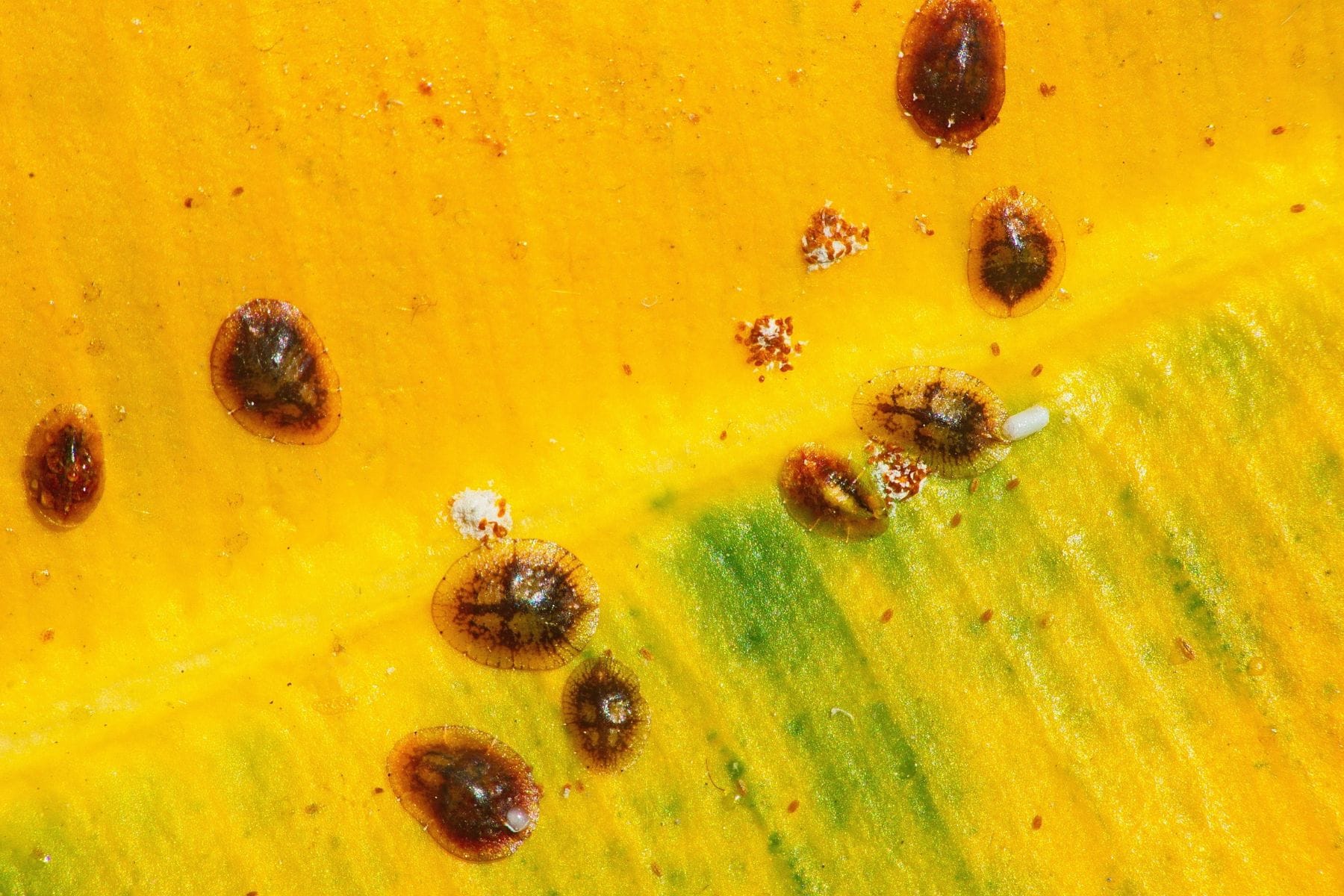
Treating Scale Insects On Houseplants
Scale insects can be particularly problematic indoors since indoor scale has no natural predators to keep them from spreading. Scale won’t affect all houseplants, but they are particularly drawn to plants with woody stems, including dwarf fruit trees and crotons. Scale can also sometimes target monsteras and different species of Ficus.
When you’re ready to tackle indoor scale problems, first isolate any infected plants to make sure the scale invasion doesn’t spread. If you have a small infestation of scale, dip a cotton swab in isopropyl alcohol and run the swab over any scale insects you see. Rubbing alcohol can penetrate the waxy shell of scale insects, and this causes them to dry out, but the alcohol does need to come in direct contact with the scale to be effective.
For larger infestations, clip away any badly infested leaves and then spray your plant with an organic, horticultural oil. Be sure to coat the entire plant, including the undersides of leaves, with your spray. Reapply the treatment at least three times every 7 to 10 days to ensure that you tackle both adult and nymphal scale insects at all stages of their life cycle.
The above treatment methods are usually enough to bust through hard bodied scale. However, if you have a houseplant that is riddled with scale insects, it may be time to toss your plant in the trash and start over with a new plant.
Also note that while neem oil and insecticidal soap sprays can be effective against soft bodied scale, these products are usually not strong enough to kill armored scale.
Treating Scale Insects On Outdoor Plants
Outdoors, scale insects are much harder to spot, and you may never actually see them in your garden. However, if you’re growing fruit trees, you may encounter scale, as these plants are often vulnerable to plant pests.
Many scale types are specialist feeders, meaning they only feed on particular host plants. Beyond fruit trees, some outdoor plants prone to scale issues include hollies, oleander, camellia, boxwood, flowering cherry, pachysandra, and roses.
If you suspect that scale insects have invaded your garden beds, you can often manage these pests with companion planting and proper plant care. Growing plants in the Umbellifer family, like Queen Anne’s lace and flowering dill, can attract natural predators to your garden and keep scale insects in line. You may also want to try companion planting with other flowering plants and herbs, such as oregano, cosmos, dill, cilantro, and sweet alyssum.
Most healthy garden plants can naturally resist scale, but if you’re growing fruit trees or other woody plants prone to scale, you may want to take a few extra precautions and proactively spray your plants with horticultural oil.
The best time to treat outdoor plants for scale with horticultural oil is usually when plants are dormant in winter, but you can also spray plants in late winter through early summer when scale crawlers are moving about. Remember only to apply horticultural oil sprays in the evening, as these products can make plants more prone to sun damage.
Tip: Whether you’re dealing with indoor or outdoor scale insects, keep in mind that armored scale can remain attached to plants even after they die. To check if your treatment has been effective, gently brush over any scale insects you see with your finger or an old toothbrush. If you can easily brush away the dead scale insects, your treatment has worked, but if the insects stay attached to an infested plant, you’ll need to treat the plant again!
How To Get Rid Of Scale On Plants FAQ’s
Absolutely! Once scale insects have been removed, plants should bounce back quickly. But if you want to give your plant an extra boost, consider feeding the affected plant with a bit of diluted liquid fertilizer or top dress the soil with some worm castings.
Diluted vinegar sprays can sometimes work on soft-bodied scale but are less effective on hard-bodied scale. Typically, you’ll get better results with horticultural oil sprays, which clog up the breathing holes on armored scale insects.
Unfortunately, armored scale are tricky pests, and there’s no fast way to get rid of them. Instead, if you’re dealing with scale, persistence is key. Sprays will need to be applied regularly, and you’ll need to watch your plant vigilantly to ensure scale insects don’t return.
Conclusion
Spider mites and aphids get a lot of attention in gardening circles, but scale insects can be even trickier pests to manage in gardens and houseplant collections. Luckily, even scale insects are no match for some horticultural oil and a few beneficial insects. So, if scale has invaded your plants, don’t despair. Try out some of the organic treatment methods we’ve covered today and make scale pests a distant memory!
Happy Gardening,
-Lauren
Lauren Landers is a Master Gardener and gardening writer living in Maine. After running a small organic farm in New England for several years, Lauren transitioned to freelance writing and loves helping others discover the beauty of organic and pollinator gardening!
This post may contain affiliate links, you can read our policies here.

